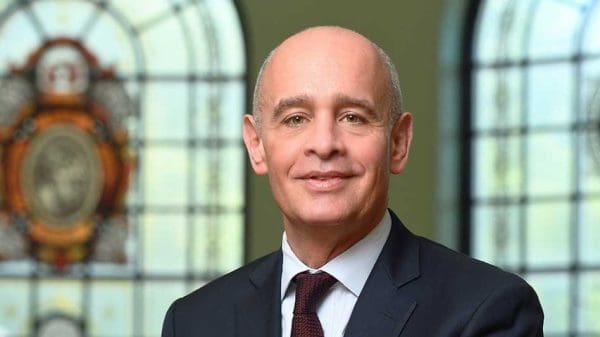
After an unusually chilly and rainy few weeks, spring is now evident on the Homewood campus, and it does not disappoint. Trees, flowers, and bushes are bursting forth with bright color; our expert landscapers are getting rid of the last vestiges of winter; and students are gathering to study for final exams. But perhaps the best place to witness the abundance of spring in our area is about 40 miles south, in Washington, D.C. That’s where, every year in March and April, thousands of cherry blossom trees erupt in canopies of pink, attracting people from all over the world to witness the floral display.
This spring in Washington, D.C., has been particularly meaningful to our university, as it is the first one to witness a major Johns Hopkins presence. Last fall, the Johns Hopkins University Bloomberg Center opened its doors at 555 Pennsylvania Avenue NW, situated at the crossroads of the branches of the federal government. The building’s primary tenant is JHU’s School of Advanced International Studies, but I am proud to say that the Krieger School has a noteworthy presence in the building and beyond. Besides being home to many of our Advanced Academic Programs, the Bloomberg Center is also a focal point for initiatives such as the Hopkins Semester D.C. and Humanities on the Mall, a series that invites noted authors to be interviewed about their work.
It is important for our students to have a front-row seat to the inner workings of our nation’s government. After all, they are going to be tomorrow’s policy makers and change agents, working to make a difference in our world.
It is equally important that our faculty expertise in the humanities, social sciences, and natural sciences be evident in D.C., where others can learn about the impact of our work. For example, in April, the Bloomberg Center sponsored a briefing with three of our professors from the departments of Earth & Planetary Sciences and Physics & Astronomy, talking about the recent solar eclipse, the science behind it, and the elements that made it such an amazing experience for millions of people.
Our faculty and staff are dedicated not just to discovery and creating new knowledge, but to sharing their innovations with the world. The university’s presence in our nation’s capital will enable them to expand our reach and impact even more. And if you happen to be in Washington, D.C., I encourage you to visit our striking new space on Pennsylvania Avenue.
Christopher S. Celenza
James B. Knapp Dean


